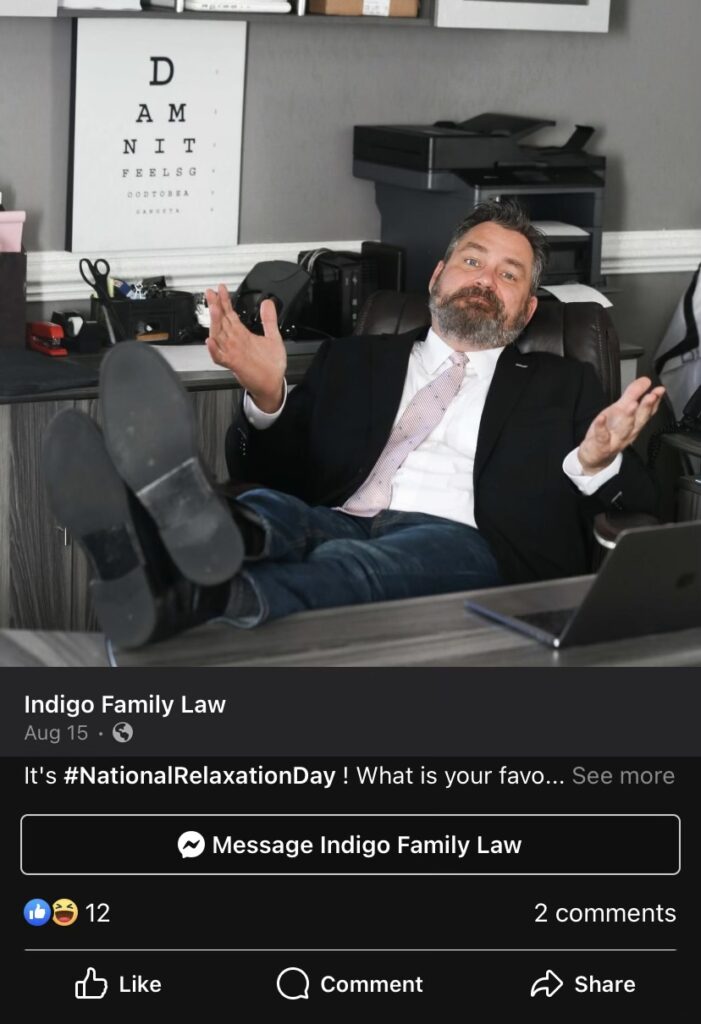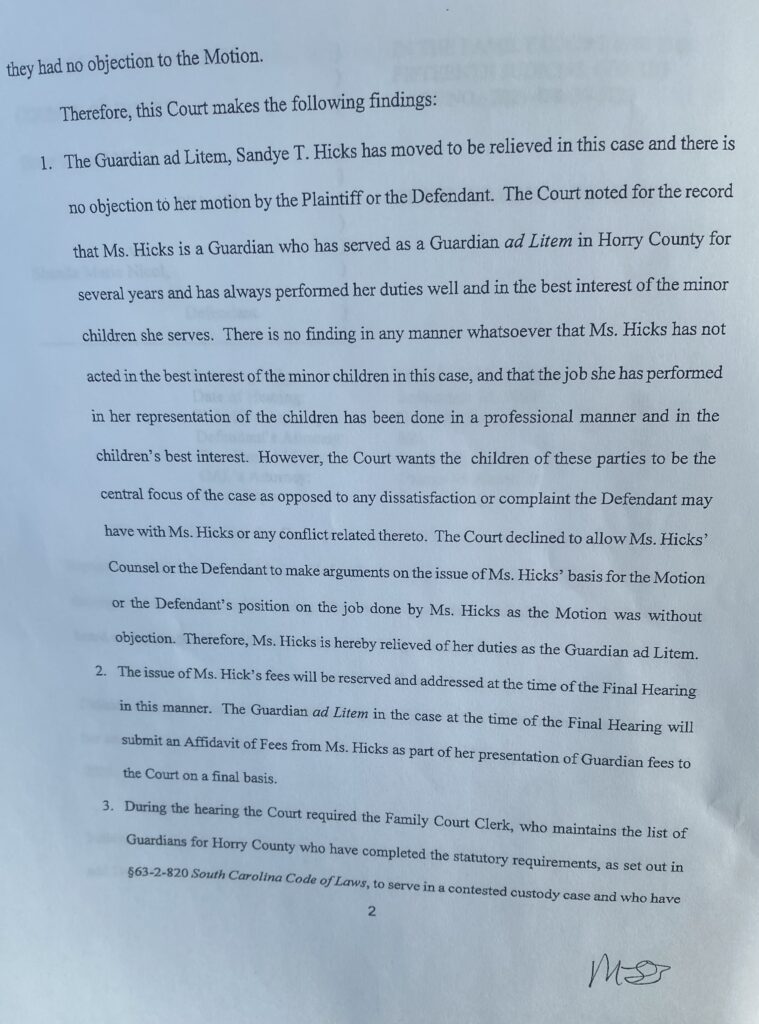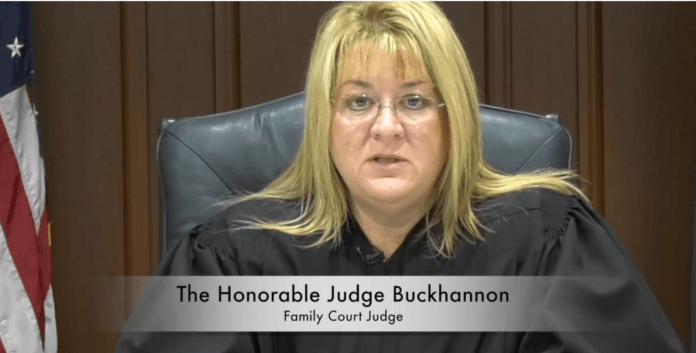The Honorable Judge Melissa J. Buckhannon allowed a motion filed by Conway Attorney George Hearn today on behalf of GAL Sandye Hicks. Hearn is the husband of former S.C. Supreme Court Justice Kay Hearn.
Hicks had previously been serving as the Guardian Ad Litem on the family court case of Nicol vs. Nicol. Hearn asked that Hicks be released from her duties.
Hicks made a motion last week requesting Judge Pogue to rule the mother in this case as needing an adult Guardian Ad Litem. That request was denied by Judge Pogue.
Judge Melissa J. Buckhannon then assigned a lawyer working for Ryan Stampfle of the Indigo Law firm as the family court’s new Guardian Ad Litem.
MyrtleBeachSC News previously covered issues surrounding the Indigo Law Firm in relationship to a DSS case where a small child died after negligence on the part of DSS.
In our previous reporting, we noted that Stampfle placed a child’s private (sealed) records into public court filings in a case where he was representing a local mother. This caused those sealed records to become part of the public record. Those court records, by law, should have never been placed in the public court record. Those actions by Stampfle were illegal.
Horry County Senator Luke Rankin later leveraged those records as “the centerpiece” of his 2020 Republican primary which he won in a run off. This senate race has been called the nastiest in S.C. History.
Stampfle and Judge Bromell Holmes equally have indirect associations with those negative campaign ads, as each violated hippa laws in allowing those records into the public sphere.
A lawsuit regarding this senatorial race is pending and still yet to be heard.
STAMPFLE’S SIGN: “Damn it feels good to be a Gansta”

A sign behind law attorney Ryan Stampfle reads: “Damn it feels good to be a gansta”

As part of her ruling today, Judge Melissa J. Buckhannon gave the mother 15 days to pay $8,000 in advance to Indigo Law Firm’s Guardian Ad Litem fees or be remanded to jail until those payments are made.
WHAT IS A GUARDIAN AD LITEM?
A Guardian Ad Litem (GAL) is a person appointed by a court to represent the best interests of a child, children, or incapacitated adult who is involved in a legal proceeding. The GAL acts as an advocate for the individual and is responsible for gathering information about their situation, conducting investigations, and making recommendations to the court.
In the case of children, a GAL may be appointed in various situations, such as divorce or child custody cases, neglect or abuse cases, or when there is a dispute over the child’s welfare. The GAL’s primary goal is to ensure that the child’s rights and well-being are protected throughout the legal process.
For incapacitated adults, a GAL may be appointed when the individual is unable to make decisions on their own, such as in cases of severe disability, mental illness, or dementia. The GAL acts as a voice for the individual and helps to make decisions that align with their best interests.
The specific responsibilities of a GAL can vary depending on the jurisdiction and the nature of the case. However, they typically involve conducting interviews with relevant parties, reviewing records and documents, and making recommendations to the court regarding custody, visitation, guardianship, or other matters. The GAL may also provide reports and testimony during court hearings to support their recommendations.
It’s essential to note that while a GAL represents the best interests of the child or incapacitated adult, they are not the individual’s legal guardian. Instead, they serve as an impartial advocate and provide input to the court to help inform its decisions.


